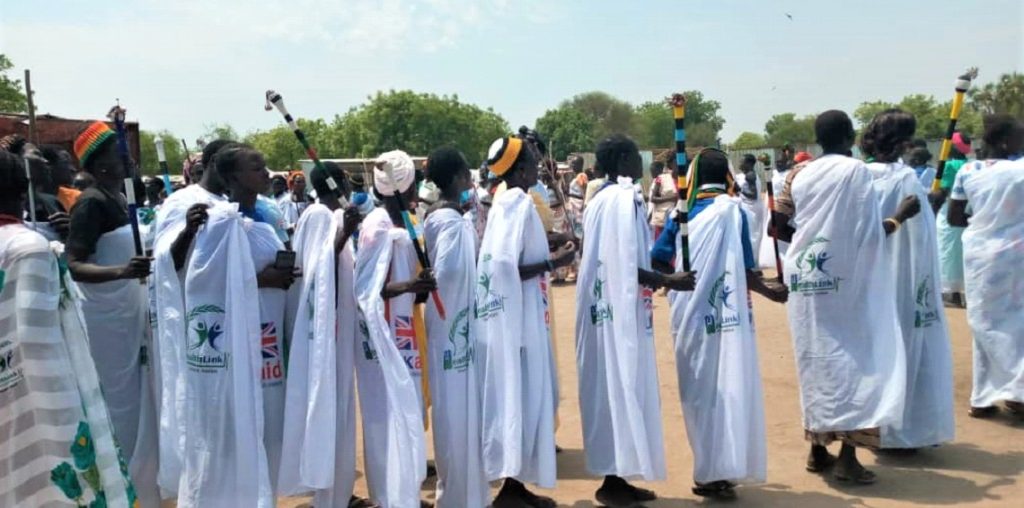PROTECTION & GENDER DEVELOPMENT
South Sudan’s history is characterized by slavery, civil wars, economic repression, inter- tribal conflicts, proliferation of small arms, which have resulted into widespread insecurity, socio-economic disparities, and gender inequalities. These inequalities have continued to fuel conflicts even after the independence of South Sudan from the north. However, the magnitude of the problem, the risk factors, and the health effects, as well as the costs to society and impact on economic growth has overwhelmed the new nation which barely has resources to tackle them.
Unfortunately, the society of the young nation has remained patriarchal with rigid notions of manhood, low level of literacy and poor access to information. Communities are still vulnerably unstable and under threats from inter-tribal attacks and prone to displacements and worse still, practice cultures and traditional taboos that exacerbate gender violence.

GBV Responses: HLSS response to Child protection and GBV is focused on the need to Increase knowledge, promote behavior change, provide access to emergency medical services to victims and survivors of gender based violence, and strengthen community structures and capacity of frontline responder to be able to respond efficiently and effectively, increase advocacy and policing and partnership for Gender Equality and Social Inclusion (GESI) to eliminate gender violence.
With support from DfID, SSHF and UNFPA HLSS established Women and girls’ friendly spaces in Magwi, Pajok, Bor South, Twic East, Melut and Lianya. Through these facilities, various GBV services, and material assistance, information sharing are provided to enhance healing and recovery from different forms of GBV trauma, and to maintain their dignity. HLSS runs the only one stop CMR Centre at Torit State referral Hospital, which serves a comprehensive GBV survivors’ response need.
CCCM in displaced communities: HLSS has huge experience and expertise in managing IDP populations. HLSS under CCM cluster successfully managed Melijo and Melut IDP sites, coordinating partners responses, service gaps advocacy, promotion of peacefull coexistences, NFIs, Shelters, Information management and peacefully handed over the sites to the RRC and the local authorities. From 2019 todate, HLSS has been implementing Mobile CCCM cluster strategy among the IDPs collective sites in Jongolei State.